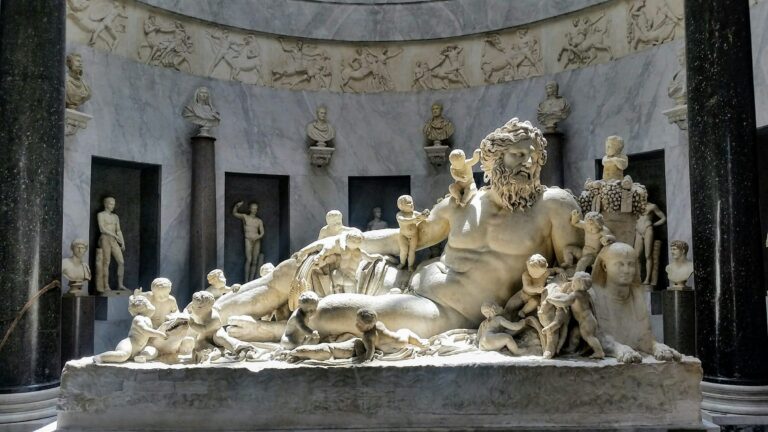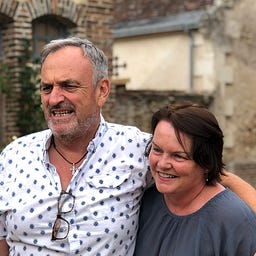RUNNING ON EMPTY

Inage: https://unsplash.com/@a_pudov
‘Do you believe in the Son of Man?’ John 9:35, NLT
How far can we take this idea of the kenosis and weakness of Jesus? One radical – and sometimes controversial – implication of his self-emptying is the possibility that everything Jesus did during his earthly life, he did from the centre of his human nature. This is the view that though Jesus was fully man and fully God, he accepted all the limitations of living a wholly human life. The Son of Man, in this view, becomes more than a title for Jesus: it represents a personal aspiration and mission statement. This comes into sharp focus towards the end of the gospel narratives, at the moment of his arrest. Matthew tells us that:
The men stepped forward, seized Jesus and arrested him. With that, one of Jesus’ companions reached for his sword, drew it out and struck the servant of the high priest, cutting off his ear. ‘Put your sword back in its place,’ Jesus said to him, ‘for all who draw the sword will die by the sword. Do you think I cannot call on my Father, and he will at once put at my disposal more than twelve legions of angels? But how then would the Scriptures be fulfilled that say it must happen in this way?’ (Matt. 26:50-54, NIV).
The sword-wielding would-be bodyguard is identified in John’s Gospel as Peter but is anonymous in Luke and here in Matthew. Jesus’s response is not only to renounce such a violent reaction but also to demonstrate he is in this situation by his own choice. He could play the God card. He could act from the centre of his divine Sonship, calling heavenly armies to his defence. Remember how, earlier in Matthew’s Gospel, he made clear the Son of Man would indeed, on a fixed day in the future, be in command of the angels? (Matt. 13:41, NLT). If he triggers those legions now, though, how will the mission be completed? Pain is coming, and anguish, but he will face them in his humanity, without the superpowers his heavenly identity could offer. This is not an imposed or unavoidable kenosis, as if some greater power is holding Jesus hostage and forcing him to function without divine privilege. This is a freely chosen self-emptying. Jesus, by his decision and his alone, comes to us as one of us and will see through his vocation, as one of us, to its ultimate conclusion.
Nor is this a one-off incident. If you rewind to the very beginning of Jesus’ public ministry, to the events immediately following his baptism, here too his self-emptying is evident. I am deeply moved by this passage from evangelist and Bible teacher G. Campbell Morgan, written in 1919:
For particular illustration, I take the story of the temptation, where the Lord is seen standing entirely upon the level of humanity. He was in the wilderness, being tempted as man, as representative of the human race; and that is not my view merely, it was His own statement. In answer to the first temptation, he said: ‘It is written, Man shall not live by bread alone.’ That is to say, in effect, I am in this wilderness on the human level, as the Son of Man taking the place every other person has to take.’
We will be returning to the temptations of Christ in a later chapter, but notice here the assertion that Jesus confronts the enemy as a human being, and as a human being he resists his manipulations. As soon as we see this, we cry ‘But of course!’ How could Jesus confront Satan in anything other than his human limitation? To confront him as God, the all-powerful, would be some kind of cheating, and would hold out no hope for the rest of us. Only if Jesus has shown us what is possible for a human being filled with and empowered by the Holy Spirit does the narrative become, for us, a source of hope. How could it be otherwise?
Jesus begins his public career by confronting Satan in the weakness and vulnerability of his humanity, and he ends it by meeting his worldly accusers in the same manner. These two passages are not simply telling us how Jesus responded to two of the most taxing moments of his life: they are telling us how he was throughout. If his ministry begins and ends this way, would you not conclude it has been this way all along? Though he is God and remains God, and is never less than equal with God, he accepts the challenge of descending fully into a human mind and body, relinquishing the privileges of divinity and living within the limitations of the sensate world.
What, then, of the miracles? Are we to believe that Jesus was acting from the centre of his humanity even in the supernatural aspects of his ministry? Surely his miracles, his foreknowledge, his wisdom and authority are evidence of his nature as God? Surely it is as God that he heals and delivers so many; that he even raises the dead? Our temptation, as we saw in an earlier chapter, is to seize on a healing here, a word of knowledge there and say ‘Aha! This proves that Jesus is divine.’ A commitment to the reality of his self-emptying, though, would say no! Even in these things, Jesus is living out of his humanity: the difference being that he is filled with the Holy Spirit and in intimate communion, by the Spirit, with the Father. Thus it is that he returns from his baptism ‘full of the Holy Spirit’ and is led ‘by the Spirit’ (Luke 4:1, ESV) into the wilderness to face the enemy. And when he overcomes and returns to his community, he declares before them, in the words of Isaiah, ‘The Spirit of the Lord is upon me, because he has anointed me to proclaim good news to the poor. He has sent me to proclaim liberty to the captives and recovering of sight to the blind, to set at liberty those who are oppressed, to proclaim the year of the Lord’s favour’ (Luke 4:18-19, ESV).
It has always intrigued me that Jesus follows this reading by saying ‘Today this Scripture has been fulfilled in your hearing’ (Luke 4:21, ESV). What does he mean? Why ‘today’ specifically? He’s been alive at this point for some 30 years. He’s known and has been known by at least some of the people in the synagogue with him for much of that time. Why ‘today’? Because today he is filled with the Holy Spirit. Today he has received his marching orders and been empowered to fulfil them. Jesus is embarking on a public ministry that will show the world what a human being filled with the Holy Spirit can be and is called to do. In the ‘fig tree’ episode we looked at earlier (Matt. 21:18-22), notice that when Jesus moves from the incident itself into a teaching moment, what he chooses to tell his disciples is that they, too, will do such things, and more. You think a fig tree is a big deal? You will move mountains! Just when they are thinking how very different he is from them, he lets them know that they can and will be like him. The miracles of Jesus were wonders displaying the power and glory of Yahweh, mediated through his human servant.
The desire to see the miracles of Jesus as the key evidence of his divinity grew through the history of the Church, but played little or no part in the life of the first Christians. For them Jesus was aptly described by the two disciples walking to Emmaus, ‘He was a prophet who did powerful miracles, and he was a mighty teacher in the eyes of God and all the people’ (Luke 24:19, NLT). As Tom Wright suggests in Jesus and the Victory of God, ‘The strongest incarnational claims in the New Testament have nothing to do with Jesus’ mighty works, and the accounts of mighty works in the gospels are not usually offered as “proof” of Jesus’ “divinity.”’ The Emmaus disciples, along with their faith community, came to fully acknowledge the divinity of Jesus, but they did not do so because of his miracles, which were received as signs of divine activity, not of divine identity. The miracles attested to Yahweh’s presence with Jesus – they were a heavenly endorsement of his ministry – without of necessity marking him out as divine.
The incarnation of Jesus, then, tells us of his absolute identification with the human condition, and the ‘kenosis’ or self-emptying of Jesus tells us of his willingness to live out that identification in humility and weakness. These two threads of meaning, carried in the title ‘the Son of Man’, are foundational to the New Testament understanding of the identity of Jesus. He is human. God has not simply visited his earthly friends but has fully inhabited their experience and reality. And he is humble, accepting the limitations implied in living from the centre of his human nature and demonstrating what it will look like for a ‘mere mortal’ to live and move in the power of God’s life-giving Spirit. For those who respond to his call, who join themselves to the Son of Man, the invitation is to an extraordinary life. I hesitate to use the word ’supernatural’ because in reality, the two natures are now one: the life of heaven is now poured out into this new human family. It is entirely ‘natural’ that they should experience ‘supernatural’ events.
The human life Jesus modelled for us – intimately connected with the Father, living moment by moment in partnership with the Spirit – is now available to us. He has ascended, uniting our human nature with the Father, and has poured out his Spirit, filling us with the very force that raised him from death. We are called and empowered to do the things he did. When Peter and John, newly Spirit-baptised, meet a lame beggar at the Temple gate, they don’t say ‘If only Jesus were here, he would heal you. If only you’d asked a few weeks ago, when he was alive, your story could have been so different. If only…’ They say, rather, ‘I’ll give you what I have. In the name of Jesus Christ the Nazarene, get up and walk!’ (Acts 3:6, NLT). They have understood, since Pentecost, that the same Holy Spirit who anointed Jesus has fallen on them and filled them. The compassion that ruled his heart now moves theirs. The calling he received – to bring good news to the anawim; to release captives; to restore sight to the blind; to free the oppressed; to announce the favour of God – is now their calling. No miracle he performed is beyond them to perform. The life he lived is now theirs to live.
This is not just a promise of some future experience of perfection, it is the gift of a present experience: the Spirit of God poured out to deliver the ‘now’ deposit of the ‘now but not yet’ reign of God. Three times in his letters, Paul describes the present ministry of the Holy Spirit as a ‘down payment’ on all God has promised for our future. The Greek term he uses implies more than a verbal promise or guarantee: it represents the first instalment, an initial experience now of the full inheritance that has not yet been released. We are not told just how much of the Kingdom is for ‘now’ and how much for ‘not yet’, but we do know Jesus urged us to pray for the coming of his Kingdom, and some of us have a hunch there is more available for ‘now’ than we are seeing. Certainly, if we compare our lives to those of the first apostles, we seem to have slipped, somewhere down the centuries, from an explosive ‘now’ experience to a somewhat grudging ‘not yet’ consolation prize.
Jesus didn’t say this would be easy. He called the Kingdom buried treasure (Matt. 13:44); a priceless pearl (Matt. 13:45). He urged us to hunger and thirst for it (Matt. 5:6), to plant seeds and watch for the fruit (Mark 4:26). None of these are images of instant gratification. They call for an investment of time and energy. This is no instant-fix, one-size-fits-all, health- and-wealth joy-ride. Rather, we are offered the image of a human being whose intimacy with the Father is so unbroken; whose experience of the Spirit is so complete that miracles of healing flow into broken places – and we are urged to pursue this same goal as our ultimate prize.
There is a significant incident recorded in Matthew’s Gospel, immediately after the transfiguration account. As Jesus comes down from the mountain he is met by a man whose son is afflicted with seizures. ‘I brought him to your disciples,’ the man says, ‘but they couldn’t heal him’ (Matt. 17:16, NLT). Jesus proceeds to heal the boy, and is later quizzed by his disciples, who ask him privately, ‘Why couldn’t we cast out that demon?’ (Matt. 17:19, NLT). The answer is instructive. Matthew records Jesus saying, ‘You don’t have enough faith,’ (Matt. 17:20, NLT); while Mark’s version has ‘This kind can be cast out only by prayer’ (Mark 9:29, NLT); or in some manuscripts ‘by prayer and fasting’. Either way, the answer is not ‘because I’m Jesus and you’re not.’ Jesus clearly believes that conditions exist under which his followers would be able to perform such a miracle, and he hints that perhaps in time they will. It is not their humanity that prevents them, it is their need for growth and development.
The Son of Man came as one of us to show us what our lives can be. ‘God became man to turn creatures into sons,’ C. S. Lewis writes in Mere Christianity, ‘Not simply to produce better men of the old kind but to produce a new kind of man. It is not like teaching a horse to jump better and better but like turning a horse into a winged creature.’ We are winged creatures; redeemed, Spirit- filled humans able and invited to grow towards the life the Son of Man, our pioneer, our humble King, has modelled.







